#conciseness
Explore tagged Tumblr posts
Text

#philosophy#quotes#Arthur Schopenhauer#Parerga and Paralipomena#Schopenhauer#expression#brevity#conciseness#words#explanations#writing
8 notes
·
View notes
Text
Good morning from the studio

The quality of “Prägnanz” that is, conciseness has been appearing in my studies so often, while remaining incredibly hard to grasp.
I need to get to its bottom. I am afraid I like to dig down into it when I find a good spot for a dig.
#work in progress#grafikdesign#build in public#study in public#graphic design#learning design#learning fine arts#learn art#learn design#conciseness#prägnanz#semiotik#semiotics#semiotic#good morning#from the studio#books#books and reading#german#deutsch#mariobreskic
2 notes
·
View notes
Text
Another question for my tumblr census...
Do what you feel is most accurate, even if there is some nuance. If nothing feels accurate enough for you, do other.
#I know this isn't all encompassing but I need to keep it concise#so using only the most common identities I see
18K notes
·
View notes
Text
Elevate Your Pitch Elevator Pitch
There is either dread or delight when people are prompted something about themselves —dread, because in front of a job interviewer, people want to say the right thing, to impress, hopefully to land the role, then there is delight in basking under the spotlight to talk about themselves, an exhilarating experience, right? Of course, in scenario where your goal is to land a job, what you say…

View On WordPress
#Academic Excellence#Attention#Attention-grabbing#Business#Call to Action#Career Coach#Compassionate Caregiver#Conciseness#Conflict#Crafting#Creative Designer#Dedicated Mentor#Dreams and Aspirations#Elevator Pitch#Elevator Pitch Elevator Pitch#Employer#Erwinism#Experienced Consultant#Hero#Hiring#Impactful#Informed decisions#Innovative Solutions#Insights#Inspiration#Interviewers#Job Interview#Job Search#Knowledgeable Advisor#Long-term Objectives
0 notes
Text

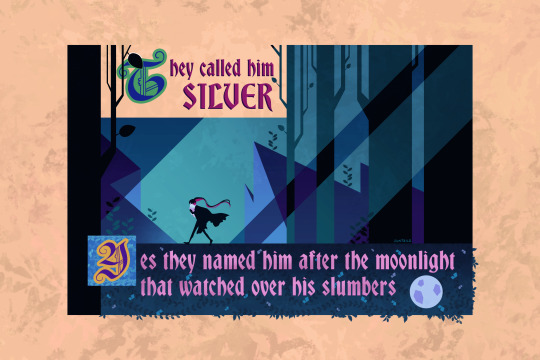


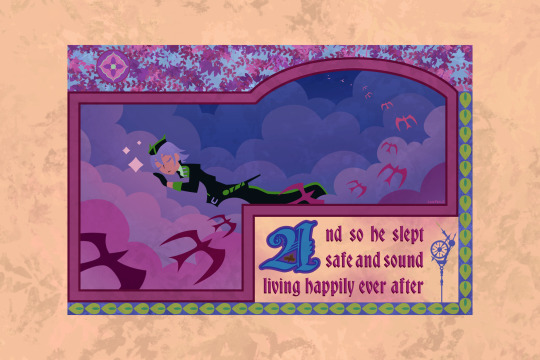
✨ Once upon a time ✨
#final portion of the artbook!!! ordrs close on 9/30 so mark ur calendars <3 <3 the storybook....his tale.....MWAH#the storybook style of sleeping beauty is absolutely enchanting and gorgeous and mesmerizing and so artistically concise i love it#v good for studying it makes me SICK. aughghgh its so COOL. illuminated manuscript my beloved. yea. yea#twst#twisted wonderland#twst silver#malleus draconia#sebek zigvolt#lilia vanrouge#diasomnia#suntails
6K notes
·
View notes
Text

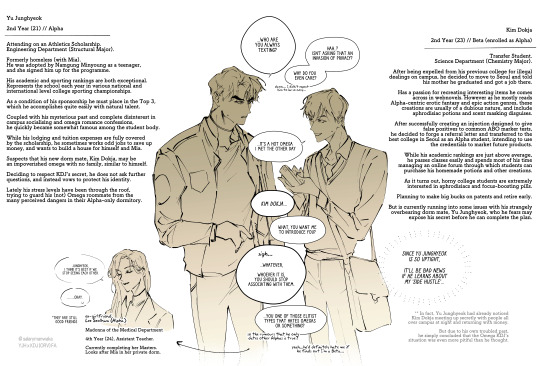
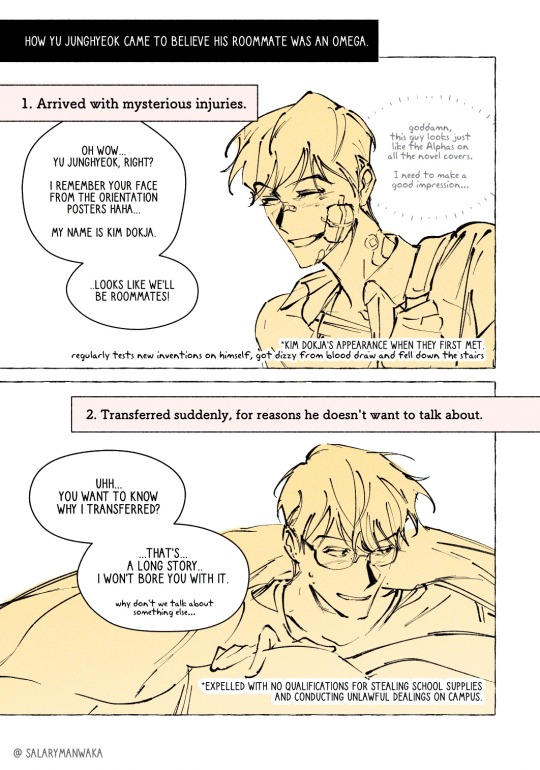
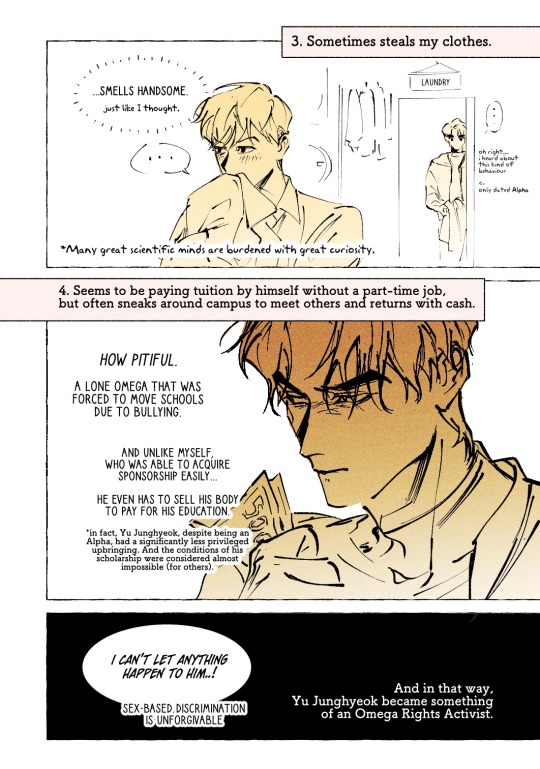
#orv fanart#orv#omniscient reader's viewpoint#yoo joonghyuk#kim dokja#joongdok#omniscient reader#putting two clowns in one dorm but they are unable to use clown to clown communication#I'M SORRY ABOUT THE ANT SIZED TEXT ON THE PROFILES TRULY THERE'S JUST A LOT OF BACKSTORY TO COVER...#I will rewrite and upload more concise profiles later including the other characters as they are slowly introduced in story (; u ;)/#but for now I didn't have the energy to edit it I apologise;;#also I've never tried writing omegaverse so it might be off I just thought the setting had incredible potential for gag manga so here we ar#if you're interested in the continuation I'm currently serialising it on twitter/bsky as I go so feel free to check there for updates#the source link will take you to the QRT thread containing current episodes + KDJ's childhood arc (ongoing) (^^)/
1K notes
·
View notes
Text
Here's something!
This is a strange feeling, but I got the urge to write something, and this is that! You see I’ve not written in my voice for quite some time now. I pull together articles on the daily for others but not for me. My voice has been a shitfaced slur for the last 5 years… probably more but that’s not what the something is today! The drive home today was the usual thought pondering in teatime traffic…

View On WordPress
0 notes
Text
Starting to think that dnp’s Hard Launch Door is actually a revolving door bc it’s never going to be all the way open and they’ll keep hitting us with it
#in trying to come up w a way to say ‘how open is the door going to be’ more concisely#I propose the Hard Launch Door I guess#but tbh gang I don’t think I’ve processed the past month of videos. it feels like we’re too close to the sun#dan and phil#phan#dnp#tracking tag
2K notes
·
View notes
Text
Something that peeves me whenever I see another post going around with some variation on "autistic people take things literally which means we are the only people who communicate Clearly and Directly" is that - for any given statement, there is not one singular, agreed on, universal Literal Interpretation. If there was, none of this would be a problem!
The nature of language is that there's always some degree of interpretability. Words have several different meanings, often overlapping, and there's nuance of context, cultural references, and so on.
Faced with a statement, most people will quickly come up with an interpretation that to them makes the most sense. But if you asked a roomful of people to explain in detail their interpretations, everyone's would probably be a little different, even for a pretty simple statement. Regardless of whether those people are autistic! Everyone conceptualizes the world a little differently, and everyone has a unique personal history of all the language they've encountered, and these things effect our interpretations.
In order for communication to be workable, given this slosh in interpretability, there's another couple of processes that go on. As conversation goes on, people reassess if their initial interpretation matches up with additional context. If it doesn't, they revise it, or ask clarifying questions. And on the flipside of this process, the other person in conversation is tracking if your reactions make sense with *their* understanding of what they're trying to convey to you, and offering context or rephrasing things if it seems you're out of alignment.
These processes are social skillsets that are, like most social skillsets, not ever directly articulated or explained. Many people are bad at one or both. Sometimes you encounter someone who is really, notably good at it - the vaunted "good listener", who puts in the effort to really understand what you're trying to say, or that really excellent teacher who engages with you back and forth until you really get it. But a lot of the time, it's a sort of passive social friction - people just not getting each other.
Sometimes, you encounter someone whose brain works so much like yours that talking to them feels almost effortless - you just get each other. But that's a pretty rare occurrence for anyone. More often, as you get to know someone, you start to understand the shape of the way they interpret things and learn to account for it, so over time it's easier to make sense to each other.
It's honestly not uncommon in society for people to aggregate in groups of people who interpret things similarly, and who are thus easier to talk to, rather than actually building the skills of communicating across interpretation gaps. Particularly egregious are those groups of men who talk about Women as an incomprehensible monolith, but it turns up to a greater or lesser degree on a lot of levels.
I suspect this is the root of a lot of parenting problems - people who have never built this communication skillset, and relied on choosing friends who make sense to them without a lot of effort, and who are then totally unprepared to interact with a child who interprets things in ways they don't expect.
Obviously I can't speak to The Universal Typical Experience, not least because it doesn't exist. But in general I would posit that:
Most people, give or take a few assholes, are not trying to say things that are confusing. Most people think they are communicating clearly, because the first interpretation *they* would come up with on hearing one of their own sentences is the correct interpretation.
Many people are not very good at accounting for different ways people could interpret things they're saying. However, it is normal and polite social behavior to be somewhat flexible about this and forgiving of misunderstandings. If people are being shitty to you about not understanding them, they are assholes. And I wouldn't assume that the rest of the communication they have with everyone else they know goes totally smoothly for them.
I suspect there is a bit of an unfortunate feedback loop, where people have bad experiences when someone gets mad at them for not getting something, and learn to hide when they're confused. Which then leads to larger, more complicated misunderstandings, which other different people get upset at them about, because those people think they should have asked for clarification in the first place.
Truly you can't win with everyone. No one can win with everyone. There is no monolith of "neurotypical communication" which resolves all these contradictions - all those people you're lumping in together under "neurotypical" have just as much trouble with each other.
#this post brought to you by: the irony of people in the notes of a post about Literal Direct Communication arguing about#what would be a clearer and more unambiguous way to express the sentiment meant by 'autistic people take things literally'#'no *your* phrasing is even *more* confusing it should be -' do you see the problem yet perhaps#Look. If someone says 'I'm the only person who communicates Clearly and everyone else is the problem'#what I hear is 'I have no ability whatsoever to account for other ways people might be interpreting things differently from me'#This is all pretty longwinded. I might try to revise down a more concise version.#Concise is hard for me; that's something I'm working on#I just took out a paragraph about literal vs figurative language because it was clunking things up#But the long and short of it is that those aren't as clearly seperable as people sometimes claim#For one thing I often see 'literal speech' used to mean 'i think the interpretation is obvious' which is sure. A tautology.#anyway sorry for my rambling slash thank you for reading it#long post
2K notes
·
View notes
Text

who up at 2pm seeing my vision
#this is my own hcs and they are ofc not complete just a very concise version#i like subtly tsundere bigshot spam lol#spamtenna#spamthoughts
820 notes
·
View notes
Text


[ID: Two sets of digital drawings of Curly from Mouthwashing. The first image is three waist-up drawings of him smiling while wearing a dark blue Pony Express hockey jersey with yellow and red accents. The first drawing has him pointing at the back of the jersey where it says "Captain Curly" with a big 01, the second has him crossing his arms, and the third has him giving a thumbs up, showing the front Pony Express logo better.
The second image is three full body drawings of him in different outfits. The first is him in the jersey, brown cargo pants, and his usual boots and belt. The second is him in a light blue western-style button up, jeans, cowboy boots, and his belt. And the third is him in a white David Bowie t-shirt, red and yellow shorts, white crew socks, and light blue sneakers while he curls 50 pound weights. end ID]
~~~~
a customer came into my store wearing a hockey jersey and i was like "whoa that's so curly mouthwashing core" and then i kept doing outfits. i'd like to do the rest of the gang as well at some point
#fg's art#mouthwashing#mouthwashing game#curly mouthwashing#sorry if the id is a bit verbose again i tried to keep it concise while still describing the fits cuz that's. The Point Of The Image#i hope that's okay#posting at a normal hour as well look at me go#anyway. curly doing curls. how fitting
1K notes
·
View notes
Text

A perfectly normal response to a rage god asking "Why do you not burn?"
#hey you gotta keep it concise#fig turned into an archdevil for gay reasons ONLY (not because she had to save the world)#fig faeth#figayda#fantasy high junior year spoilers#fhjy spoilers#dimension 20
3K notes
·
View notes
Text
saw some posts about how IF writers need to free themselves of the shackles of long word counts and honestly, I agree. some of my most favorite published IFs are 180k words long without code. that's an average chapter for some on here which is impressive and amazing for readers but telling a story in less and having it make an impact still is also incredibly impressive to me
#m.txt#there's smth to be said about how long WCs also don't mean amazing pacing or development or that it's a guaranteed banger#I used to be guilty about thinking long game = better game but that's not true looking back at some of my fave works#180k is an entire book length and takes AGES to churn out still#idk my thoughts are all over the place w that subject but I also see a lot of writers being discouraged by writing 10k chapters max#back when I started writing IFs that was alright. even the norm for some#now 10k is an average scene without much branching#what I want to say ig is that less is sometimes more. being able to tell a story in a tight & concise manner is the best thing you can do#for your work if you have an idea but don't want to tackle it thinking you can't tell it in a million words or stretch it to appear longer#sometimes a plot going from one point to the next is better than filler scenes
450 notes
·
View notes
Note
It's a silly question, but what kind of handwriting would Mychael have?
Something like this! Inconsistent sizes, big arcs, decent gap between letters. If this wasn't a font, it'd be more helter skelter.

Overall, he writes like he always has places to be (true) so it's not the neatest but it gets the job done! 🍯🐝
Bonus: Alma/Vida's handwriting OR Atom's handwriting.
#mushroom oasis vn#mychael ask#a reference to a previous ask in mychael lore#also id imagine he'd be very concise in his writing#he might even forgo grammar bc who else would read his writing except him COUGHS COUGHS COUUGHS#doodles#for my own reference the font here is West Coast by FontPanda!
829 notes
·
View notes